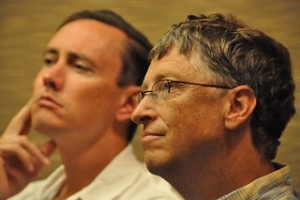 Sometimes a little goes a long way. This principle guides the idea of investments when one hopes that an initial effort or resource will somehow profitably pay off at some point in the future. Institutionally and globally, this is how education has come to be understood. The power of education has recently begun to change the lives of farmers around the village of Buganda in the Democratic Republic of Congo (DRC). There are programs that improve food security in the Democratic Republic of Congo.
Sometimes a little goes a long way. This principle guides the idea of investments when one hopes that an initial effort or resource will somehow profitably pay off at some point in the future. Institutionally and globally, this is how education has come to be understood. The power of education has recently begun to change the lives of farmers around the village of Buganda in the Democratic Republic of Congo (DRC). There are programs that improve food security in the Democratic Republic of Congo.
In a project facilitated through World View, 2,000 farmers had been brought into classes of 30 for a farmer field school meant to teach new and innovative agricultural techniques to farmers, including simple but extremely valuable practices such as drip irrigation and proper seed spacing. These techniques help to stretch valuable and limited resources and increase harvests to unprecedented yields.
The program also involves empowering women in their local communities, trying to make sure that equal and efficient work is understood by everyone and that no one is disadvantaged in the future.
The farmers in this project plan to form collectives and resource pools for the betterment of their community; after all, there is strength in numbers.
“Learning about improved techniques has enabled them to increase yields: where once they harvested two bags of cassava, now they get 15,” writes The Guardian.
The optimistic outlook for this project is that it will significantly help alleviate poverty for more subsistence farmers. As far as food security in the DRC goes, ongoing military conflict undermines the gains from improved methods because harvests and resources are taken by militias from both the DRC and Rwanda.
Thus, the prospects for food security in the DRC are uncertain. Societal innovation and destruction are continuously at odds but hopefully, when the violence ends, the farmers will be ready to produce sustainable quantities.
– Nina Narang
Source: The Guardian
Photo: Catholic Relief Services

